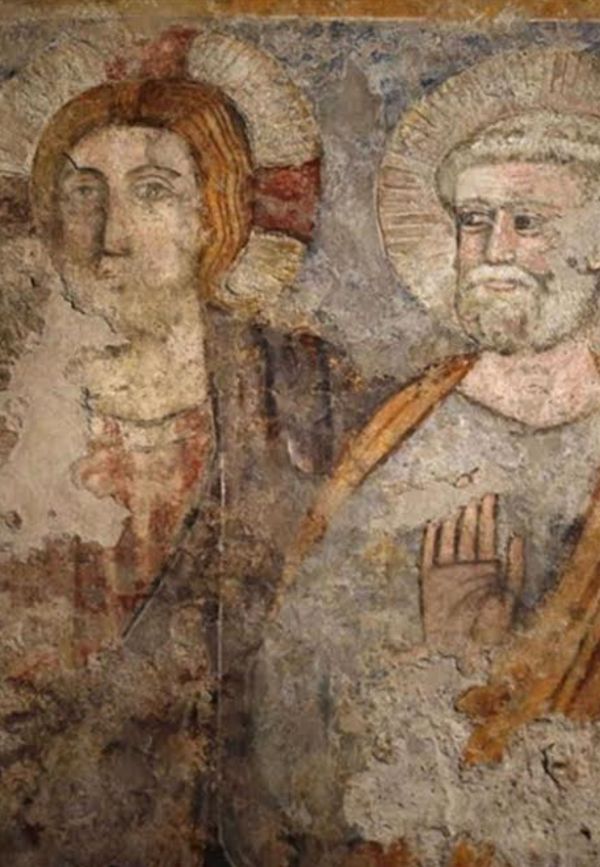(Mt 16:13-23)
Over half of his public life, Jesus has not yet given formulas, but He raises a demanding question - which claims to ask us much more than the usual expressions with a legal structure.
The crowd may have approached Him to eminent characters such as the Baptist [the one who proved to be alien to courtiers] or Elijah [for his activity of denouncing idols] or Jeremiah [the opponent of the blessings’ sale].
But He didn’t come - like ancient prophets - to improve the situation or to regret and mend devotions, nor to purify the Temple, but to replace it!
The images of tradition depict Christ in many ways (for atheists a philanthropist), the most widespread of which is still that of an ancient Lord, guarantor of conventional behavior.
Instead - to make us reflect - He takes the disciples to a construction site environment [north of Palestine, Caesarea Philippi was under construction], far from the interested nomenclature of the "holy" City.
Common mentality evaluated the life’ success - and the truth of a religion - on the basis of glory, domination, enrichment, and security in general.
The question that Jesus rises his disciples leaks a novelty that supplants the whole system: the Call is addressed to every single person.
It’s a border proposal, like the symbolic geographical place of the capital of the reign of Philip, one of the three heir sons of Herod the Great: in Palestine, the farthest point from the center of conformist religiosity.
The Face of the «Son of man» is recognizable only by placing maximum distance from political and veterans schemes - otherwise we too would not be able to perceive His personal ‘light’.
In the community of Mt, an increasingly large participation of pagans was being experienced, who previously felt excluded and gradually integrated.
For our mentality, the house keys are used to close and tighten the door, to prevent the attackers from entering.
In the Semitic one, they were rather an icon of the door’s opening.
In Perugino’s famous masterpiece on the north wall of the Sistine Chapel, Jesus gives the head of the Church two keys: the golden one of Paradise and the silver of Purgatory.
But the meaning of the passage is not the Afterlife - on the contrary, it’s not even institutional. In Hebrew the term ‘key’ is derived from the verb ‘to open’!
The greatest missionary task of community leaders is to keep the Kingdom of Heaven wide open, that is, to ensure a welcoming Church!
Peter mustn’t trace the type of arrogant monarch, image of authority; emperor’ substitute.
Simon must take first responsibility for the acceptance of those who are outside.
It seems strange for any ancient proposal, where God was supposed to be afraid of becoming impure in contact with the world.
The Father is the One who dares the most.
This is the reason why Jesus strictly imposes a total messianic silence (v.20) on the lips and the ancient brain of the Apostles.
Peter and the disciples wanted to return to the usual idea of «the» Messiah [cf. Greek text] expected by everyone.
An all too normal canvas, incapable of regenerating us.
[Thursday 18th wk. in O.T. August 8, 2024]












